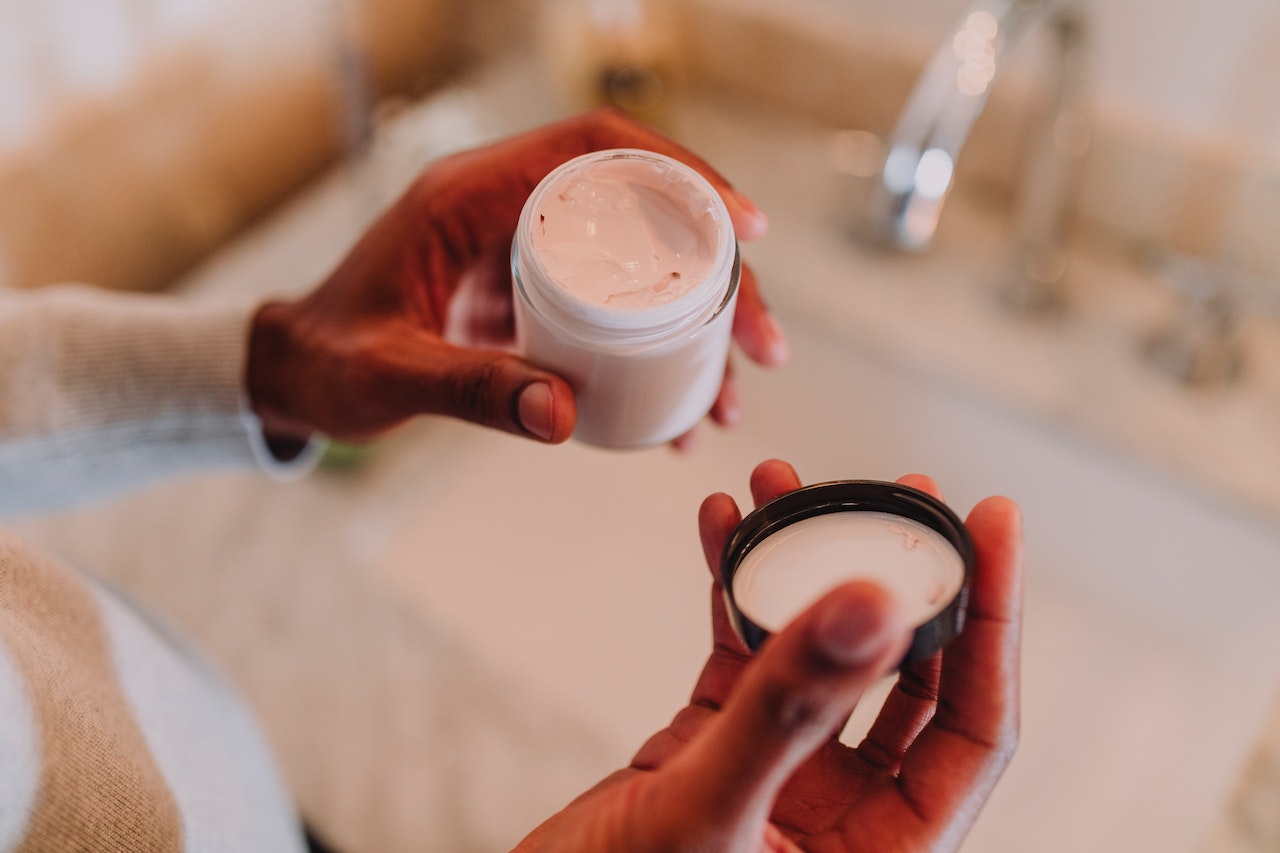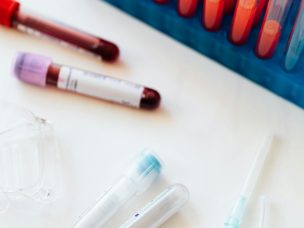Most people understand that eczema is an irritating condition that affects your skin. However, many people fail to consider the fact that eczema isn’t just confined to your arms or legs. It can be found anywhere on your skin, including your breasts.
Breast eczema is a specific type of eczema that needs to be understood as part of a larger condition and as an individual condition. This article will cover the causes, symptoms, and treatment options for breast eczema.
Related: Blacks with Eczema Underutilize Healthcare Options
What Is Breast Eczema?
Eczema is a broad group of skin conditions. These skin conditions lead to skin becoming dry and irritated.
Breast eczema is a type of eczema that specifically affects breasts. It impacts the breasts themselves and the area around them. This includes the nipples, the entirety of the breasts, the space between breasts, and other places on the chest.
Symptoms of Breast Eczema
With breast eczema, the skin on and/or around the breasts may see a range of problems. It will typically get dry, leading it to become itchy. The dry skin can even start to become flakey and break off.
The skin can also change visually and in texture. It will usually turn red or develop discolored patches. It may also swell and get bumpy. In some cases, it will even become thicker and take on a leathery texture.
This all varies in intensity. Sometimes, the case is mild, and the symptoms are only present in a limited way. Other times, the case is more severe, and the symptoms are nearly unbearable. Treatment can help when it comes to managing severity.
When to See a Doctor About Breast Eczema
You should see a doctor as soon as you start to notice the symptoms of breast eczema. Don’t wait for the problem to get worse before you go.
Your doctor will be able to determine if the issue you suspect is eczema is actually eczema. Diagnosing the condition isn’t always easy, and misdiagnosis is more common for people with dark skin. Some conditions are similar to eczema and can be hard to tell on your own. Knowing what you are dealing with is a critical first step before you move on to dealing with it.
Once they have determined that you have breast eczema, your provider can put you on the right path in treating it. This may include actual treatments that will directly impact eczema. However, it should also include helpful advice regarding how to deal with your eczema.
Trying to improve the way your practice treats diverse populations? Learn more about MDNewsline’s solutions and how we can help.
Causes of Breast Eczema
Eczema is a bit enigmatic because it is often unclear what causes it. The same can be said for breast eczema.
However, there are a few causes that may lead to it. It may be due to an overactive response from the immune system, an environmental trigger, or even just genetics. There is even evidence that stress can cause eczema. So, the exact cause of a specific case of eczema can be difficult or even impossible to determine.
The actual effects of eczema are partially caused by a breakdown that occurs in the skin itself. The barriers that surround the skin are weakened. In this state, they fail to keep out things like bacteria and other irritants. They also fail to keep in things like moisture. Introducing irritants leads to irritated skin, while a lack of moisture adds to the irritation and causes dryness.
Related: Prevalence of Eczema Between Cesarean‑Born and Vaginal‑Born Infants
Breast Eczema Triggers
Eczema isn’t constantly present. It is triggered by events that set a breakout in motion. Knowing these triggers can help you prevent a breakout.
Rubbing the skin is a very common trigger for all types of eczema. With breast eczema, this is commonly caused by bras. Bras made from rough fabric or bras that are improperly sized are irritating on their own. Meanwhile, irritating underwires or a generally irritating construction can also cause problems. Choosing a soft bra that works for you can help prevent breast eczema flare-ups.
Keeping your skin exposed to moisture for extended periods is also not good. With breast eczema, this often happens if your bra becomes sweaty during a workout or if your bathing suit top stays wet for too long. In these cases, you may want to bring a dry change of clothes or take a break from activities that will lead to more moisture.
Avoiding dry skin is another way to potentially avoid eczema triggers. Look for a moisturizer that will prevent dry skin. Try to find a cream or an ointment, as these often work better than lotions. Make sure to apply this everywhere on your breasts where eczema is a problem.
Chemical irritants are another potential eczema trigger. In many products, the chemicals used in fragrances can trigger eczema, alongside being generally unhealthy. If you use scented lotions, creams, or other products on your breasts, you may be contributing to the issue there. In addition, try to use mild soaps in your laundry, as harsh chemicals may make their way into your clothes otherwise.
Finally, triggers may come from allergies. These include environmental allergies and food allergies. As one-in-three people have allergies, this is more common than you may think. Allergy-related triggers are not specific to breast eczema but, instead, can impact all types of eczema.
Want to stay up to date with the most relevant medical news? Subscribe to get updates right to your mailbox.

Breast Eczema Treatment Options
Unfortunately, no treatment will currently cure eczema entirely. Instead, treating the condition is the focus. With most mild cases of eczema, the best thing you can do is work on eliminating or managing the triggers that bring it about.
However, for more serious cases, more serious treatment options are available. In these cases, you should speak to a healthcare professional. They will be able to provide you with the treatment and guidance you need.
They will typically supply you with products that are stronger and are specifically designed to treat the issue. These include steroid creams, antihistamines, oral steroids, and even injections. Besides this, therapies are available. Specifically, light therapy has been used to treat eczema. None of these will fully cure eczema, but they can make severe cases more manageable.
Besides these treatments, more natural options are in the process of being recognized. For example, fig leaf tea has shown promise in treating the condition.
Dealing with Breast Eczema
Breast eczema can be a troubling condition that, unfortunately, has no cure. However, if managed properly, it can be managed. By avoiding triggers and seeking out treatments, people with breast eczema can minimize the trouble caused by their condition.
Related: Adult Atopic Eczema and the Risk of Dementia











